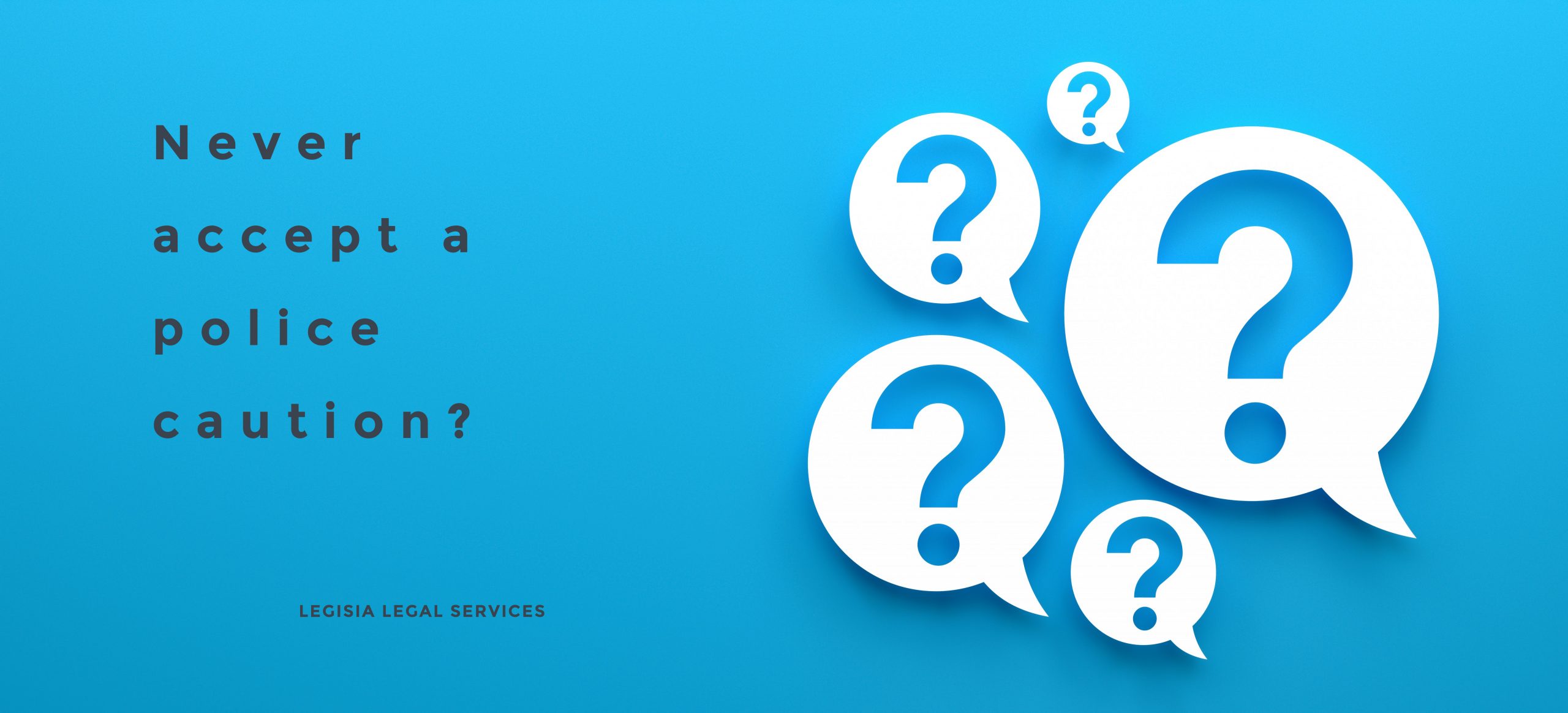You may have seen advice on the internet recommending that you should never accept a police caution.
We will look at whether it is always the best advice to never accept a police caution, and when it might be best to actually accept a police caution.
Never accept a police caution?
It is tempting for some people to always resist the police, and effectively not cooperate with any police procedures. Whilst this may work in certain circumstances, it can actually be counterproductive at times.
If a legal adviser were to adopt the view that you should never accept a police caution in any circumstances, they would in fact frequently be making matters worse for their clients.
It is an essential skill for any legal advisor to be able to tell when it is best to advise accepting a police caution, and when to refuse one – if a lawyer adopted a “never accept a police caution” approach, they would be a very poor lawyer.
When to accept a police caution?
You should consider accepting a police caution if the evidence against you is strong.
The issue will then be to decide if the evidence is in fact strong.
At the police station, particularly if you are on represented, it may be difficult to precisely determine the strength of the evidence against you. The police are not allowed to directly mislead a suspect about the strength of the evidence against them, but they may withhold evidence, so that it is unclear exactly what the strength of the case is.
If it is clear however that the evidence is very strong, then you should give very strong consideration to accepting a police caution
Never accept a police caution unless the case is strong
It may be better to say, never accept a police caution unless the case against you is clear, and the evidence is strong.
If you don’t accept the caution in these circumstances, you run a much higher chance of being charged by the police, and ultimately being convicted.
A conviction will have more serious implications in terms of sentencing, with the possibility of imprisonment, and also will have a longer-term impact in terms of background checks.
An example of when evidence may be strong is if someone is found in possession of illegal drugs, and there is no reasonable explanation as to why.
In those circumstances, if you do not accept a caution, it is quite likely that the police will charge you. There may be arguments to be made for a lower disposal, such as a PND or a community resolution, but if the police do not want to offer these, if you refuse the caution, it is very likely that you will be charged.
Never accept a caution if the case is weak
On the other hand, if the evidence against you is very weak, then you may be best advised to remain silent, or where you have a plausible defence, then explain yourself, and then refuse the caution.
The police and CPS will need to carefully consider the public interest in proceeding to a prosecution where the evidence is very weak. The police deal with hundreds of cases a day, and they cannot afford to prosecute weak cases that are unlikely to result in a conviction. The financial costs of prosecuting are very high, and so the police and prosecution will not want to waste resources on cases that are unlikely to succeed.
Whilst there is always a risk if you refuse a caution that you could be charged, if the evidence is very weak, this risk is low.
An example of a case where the evidence is weak is where someone has been accused of assault, but the complainant refuses to provide a statement or cooperate with the police’s investigation. Essentially there is no other evidence other than the initial telephone report to the police. Whilst the police do have the power to summons a reluctant witness to court, the more minor the allegation, the less likely this is to happen. Often where the evidence against the suspect is very weak, the best advice to a suspect is to remain silent, thereby avoiding providing the police with any incriminating evidence.
Never accept a police caution?
It is not therefore sound advice to always advise someone to never accept a police caution if it is offered. It will depend on the facts of the case.
Refusing a police caution where the evidence is strong, is likely to result in a prosecution, and ultimately a conviction and criminal record. Accepting a caution in these circumstances would be the lesser of two evils.
On the other hand, where the evidence is very weak, remaining silent, preventing the police from obtaining any additional evidence, is often the best course of action.
What happens if I have accepted a caution?
If you have accepted a caution, and are now worried about the impact on your professional career, or overseas travel, it may be possible to get your caution removed.
We are expert and dedicated criminal records lawyers, who have extensive experience in applying for the deletion of police cautions from the Police National Computer (PNC).
We have successfully applied for hundreds of police cautions and arrest records to be removed from the PNC, please get in touch to discuss your case.

